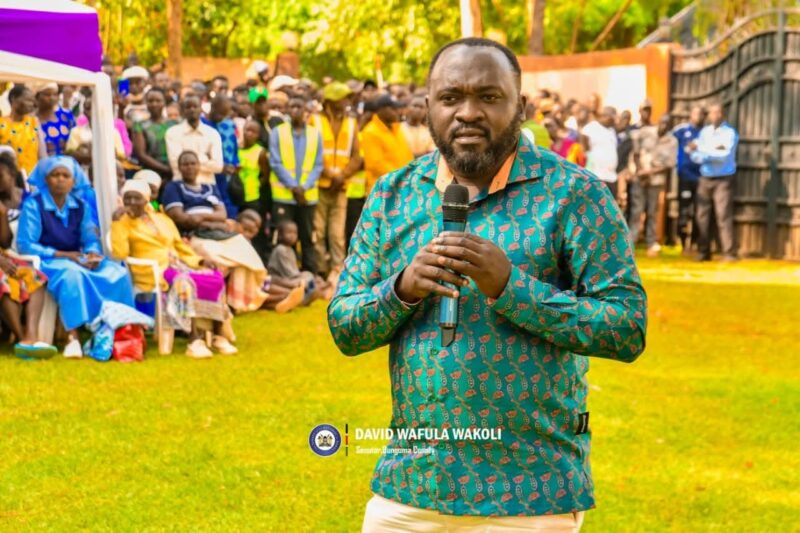Bungoma Senator David Wafula Wakoli has urged County Governors to prioritize sufficient budget allocations for the Early Childhood Education (ECD)’s revitalization.
Speaking on the floor of the Senate on Tuesday, the youthful lawmaker highlighted the stark disparities in ECDE facilities across Kenya’s counties, framing his call as a forward-looking olive branch rather than a finger-wagging indictment.
Wakoli’s remarks come amid growing scrutiny over the state of ECDE centers nationwide, including in his home county of Bungoma, where recent reports have exposed learners enduring classes in dilapidated iron-sheet shacks and without basic amenities like clean water.
Just weeks ago, the senator decried such neglect during an inspection tour, questioning whether county leadership truly cared for the youngest learners despite receiving billions in annual devolved funds.
“It is a matter of grave concern that Early Childhood Development and Education (ECDE) infrastructure across counties remains uneven and inconsistent,” Wakoli stated in his address.
“It is unjust that while some of our young angels access basic nutrition such as milk and porridge, others are left behind without these fundamental provisions.”
The senator extended an implicit truce, encouraging the County Chiefs to channel resources into standardization without the baggage of blame. This approach, observers note, could foster bipartisan support for education reforms, especially as Kenya grapples with broader fiscal pressures.
Equal Opportunity
Wakoli directed his strongest appeal to the Senate Standing Committee on Education, tasking it with impressing upon governors the imperative of ring-fencing budgets for ECDE.
“I therefore urge the Senate Standing Committee on Education to impress upon County Governors the need to allocate sufficient resources in their budgets to standardise and strengthen ECDE facilities,” he said.
“Our children, regardless of where they are born, deserve equal care, dignity, and opportunity at the very foundation of their education journey.”
This emphasis on “fair play” underscores Wakoli’s broader advocacy for balanced resource distribution. In Bungoma alone, where the county receives over KSh 13 billion annually – a portion earmarked for education – the senator has repeatedly questioned the prioritization of funds, pointing to facilities like St. Veronica Comprehensive School in Ranje as emblematic of systemic failures.
Broader Challenges
Wakoli’s speech arrives against a backdrop of heightened accountability in devolution. Recent audits by the Controller of Budget have flagged counties, including Bungoma, for operating hundreds of unmonitored commercial bank accounts, raising fears of fund mismanagement.
In July, the senator himself led a probe into market facilities in Bungoma, exposing issues like unreliable water supplies that indirectly affect community well-being, including school feeding programs.
Nationally, ECDE funding remains a devolved responsibility under the 2010 Constitution, with counties expected to cover teacher salaries, infrastructure, and nutrition. Yet, a 2024 report by the Kenya Institute for Public Policy Research and Analysis (KIPPRA) revealed that only 40% of counties meet the recommended 15% budget allocation for education, leaving many rural ECDE centers under-resourced.
Foundation for the Future
As the Senate Standing Committee on Education takes up Wakoli’s urging, stakeholders hope it will translate into actionable oversight, perhaps including model budget guidelines or performance audits. For now, the Bungoma senator’s words serve as both a critique and a catalyst, reminding leaders that the “young angels” of today will shape Kenya’s tomorrow.
In an era where early education disparities perpetuate cycles of poverty, Wakoli’s plea resonates far beyond the Senate chamber. Whether governors heed this “pardon” and invest accordingly could well define the next chapter in Kenya’s devolution story.


